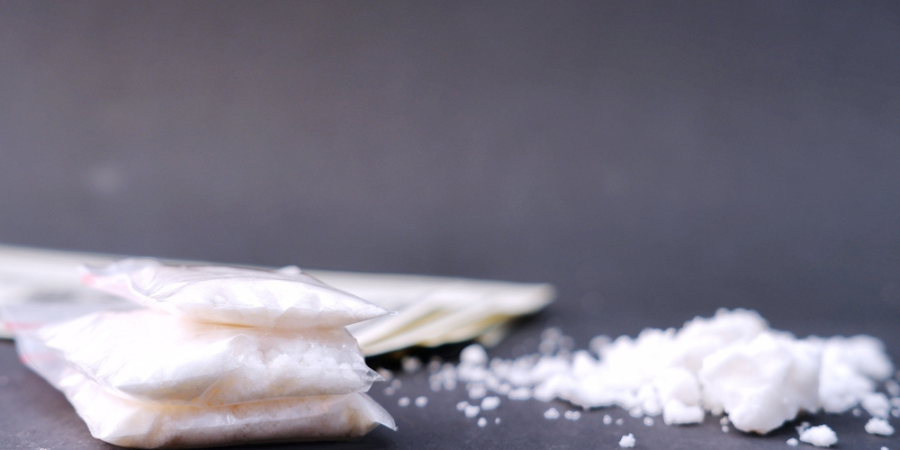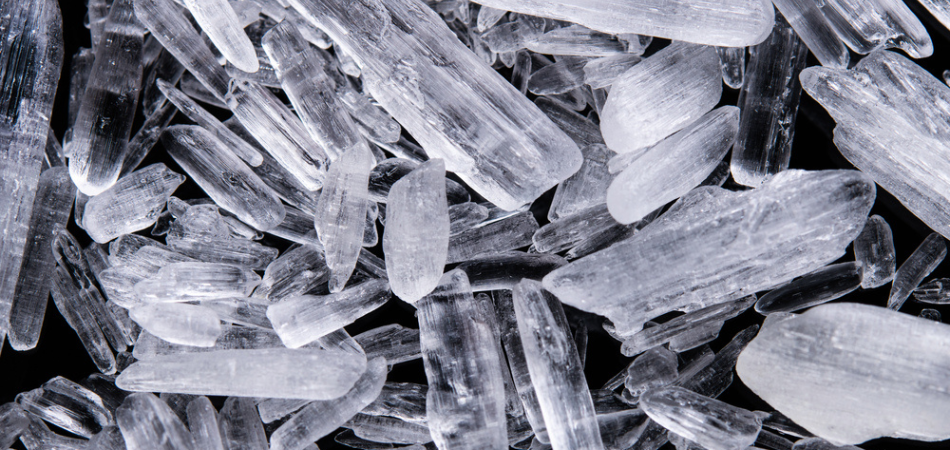
Written by:

Medically Reviewed by:
Last Updated:
October 20th, 2025
Crack Cocaine Addiction | Signs, Symptoms & Effects
Crack cocaine is one of the most notorious drugs worldwide, with the “Crack Epidemic” of the 80s and early 90s in the USA marked by rampant addiction and enormous personal and social consequences. In the UK, crack cocaine addiction and abuse have been significant issues since the drug first hit the streets. The effects of crack addiction can be devastating, wreaking havoc on individuals, their families and entire communities.
What is crack cocaine?
Crack cocaine is a highly addictive form of cocaine that has been processed into a rock crystal. The term “crack” refers to the crackling sound the drug makes when heated. Unlike powdered cocaine, which is usually snorted or sometimes injected, crack cocaine is heated and the vapours are inhaled. This creates an intense and immediate high with effects which include increased energy, alertness, confidence and aggression.
Street names for crack cocaine vary by country, but in the UK include:
- Rock
- Freebase
- Base
- Hard
- Grit
- Hail
The UK Government estimates that there were 47,168 crack cocaine users in the UK between 2019 and 2020. While the COVID-19 pandemic means that more recent numbers are not yet available, those numbers show a year-on-year rise from 2017-2018 (39,694 users) and 2018-2019 (45,632).
The number of people using both crack cocaine and opiates has also followed the same pattern:
- 2017 – 2018 – 104,864
- 2018 – 2019 – 119,731
- 2019 – 2020 – 129,584
What is crack cocaine addiction?
Crack cocaine addiction is basically when someone can’t stop using crack cocaine, even though it is harming them. It is unlikely to become addicted to crack after one use, with drug addiction usually developing in stages:
First use
You try crack cocaine for the first time and experience a powerful high, which can make you want to take it again.
Regular use
You start using crack more often to feel that same high, but after a while, you find you need more than before. This is called “tolerance”, and it is when your body starts to become immune to the effects of small amounts of crack, so you have to up the dosage.
Risky use
Your use becomes more frequent and risky, affecting your daily life and responsibilities.
Physical dependence
You begin to feel like you need crack just to function normally, and without it, you feel anxious, depressed or irritable. This means you have become physically dependent on crack, and stopping suddenly can be dangerous because your body can have an extreme reaction to its absence.
Crack addiction
At this point, you lose complete control of your crack cocaine use. This is the hallmark of crack cocaine addiction and will see you prioritise getting and using crack over everything else, even though it’s causing serious problems in your life.
What are crack addiction signs to look out for?
If you’re worried someone might be addicted to crack, here are some signs to watch for:
- Constant cravings: Always talking about or thinking about using crack and becoming desperate to get more.
- Change in behaviour: Becoming secretive, lying about activities or starting hanging out with a different group of people.
- Neglecting responsibilities: Starting to miss work, school or important family events because of crack cocaine use.
- Money problems: Frequently asking for money, selling belongings or committing crimes to buy crack.
- Physical changes: Signs like weight loss, burns on lips or fingers and frequent nosebleeds.
- Mood swings: Extreme mood swings like going from very high and energetic to very low and depressed quickly.
If you notice these signs, it is important to reach out for help. Early intervention can make a big difference in getting you or your loved one the necessary support.
Why is crack so addictive?
While the effects of powdered cocaine do not last very long, the effects of crack are even shorter-lived, often lasting only ten minutes or so. This means that people addicted to crack have to take repeated doses constantly. Crack cocaine is far cheaper than powdered cocaine, which, alongside the need for repeat use, greatly increases the chances of crack addiction and abuse.
There are also different personal reasons, unique to everyone, which can make it more likely that you become addicted to crack:
Stress and trauma
People who have experienced a lot of stress or trauma might turn to crack to try to escape their feelings.
Mental health issues
Those with conditions like depression or anxiety might use crack to feel better temporarily, but this can quickly lead to addiction.
Peer pressure
Being around friends or groups that use crack can make someone more likely to try it and get addicted.
Environment
Growing up in an environment where drug use is common can increase the risk of trying and getting addicted to crack. This is why crack cocaine addiction rates are higher in areas of high poverty where drug use is often used as a form of escape from hardships.
Genetics
Some people are more likely to become addicted because of their family history and genetics.
What are the consequences of crack addiction and abuse?
Crack addiction and abuse can lead to many serious problems which can ruin your life, tear apart your family and blight entire communities:
Health problems
Using crack can cause severe health issues like heart attacks, lung damage, seizures, dangerous weight loss, high blood pressure, paranoia, hallucinations and fatal overdose.
Relationship issues
Crack addiction can cause arguments and mistrust and seriously harm your relationships with family and friends.
Legal trouble
Many people with crack addiction get into legal trouble, such as arrests for drug possession or other crimes to support their habit. Crack cocaine is a Class-A drug in the UK, which means you can go to prison for seven years for possession and life for supply or production.
Financial problems
Constantly buying crack can lead to money problems, including debt, job loss, bankruptcy and homelessness.
Mental health decline
Long-term crack use can lead to serious mental health issues like depression, anxiety and even psychosis. These can be new mental health problems or pre-existing ones which are worsened by cocaine use.
Can you recover from crack addiction?
Crack cocaine addiction treatment involves several key steps. First, you will go through drug detox to get the crack out of your system with medical help to manage withdrawal symptoms. Drug rehab therapy is then crucial to understand and cope with the reasons behind your crack cocaine use, including one-on-one, group and family sessions. After that, you will then leave rehab but continue with therapy through an aftercare programme, join local support groups like Narcotics Anonymous or Cocaine Anonymous and practise healthier living.
Get help for crack addiction today
If you or a loved one is struggling with crack cocaine addiction, Linwood House is here to help. Our compassionate and experienced team is dedicated to supporting your journey to recovery. We offer a safe and supportive environment where you can take the first step towards a healthier, drug-free future. Reach out to Linwood House today to learn more about how we can help you overcome addiction and start a new chapter in your life.
Frequently asked questions
(Click here to see works cited)
- GOV.UK. “Drugs penalties.” GOV.UK,
https://www.gov.uk/penalties-drug-possession-dealing. Accessed 29 May 2024. - GOV.UK. “Estimates of opiate and crack use in England: main points and methods.” GOV.UK, 24 October 2023, https://www.gov.uk/government/publications/opiate-and-crack-cocaine-use-prevalence-estimates/estimates-of-opiate-and-crack-use-in-england-main-points-and-methods. Accessed 29 May 2024.
- Release. “Crack cocaine.” Crack cocaine | Release, https://www.release.org.uk/drugs/crack-cocaine/pharmacology. Accessed 29 May 2024.
- Hatsukami, D K, and M W Fischman. “Crack cocaine and cocaine hydrochloride. Are the differences myth or reality?.” JAMA vol. 276,19 (1996): 1580-8.






